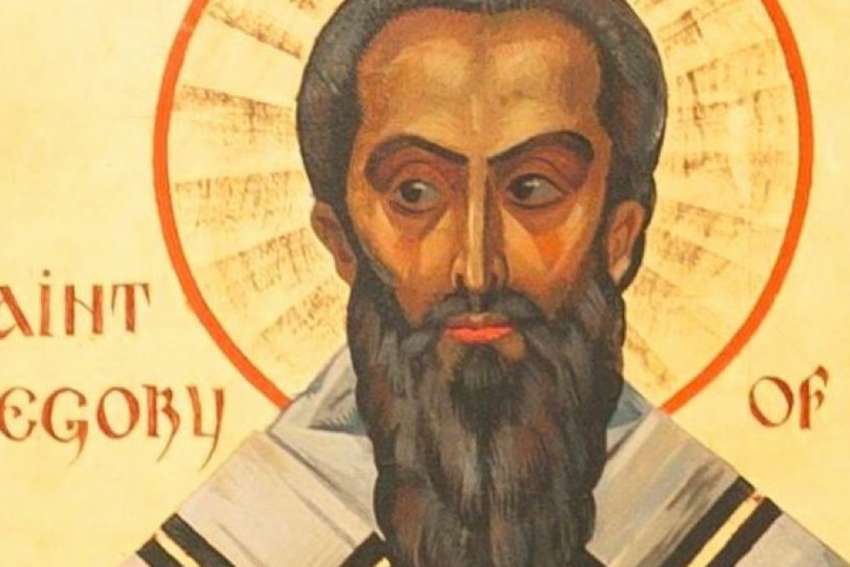A contemporary theologian, musing about the emptying of churches, wondered if it’s because people think: “The Church makes schools and hospitals, but we have those now, so we’re fine without it.”
Is the Church needed?
I don’t know if this question was on the (brilliant) mind of Gregory of Nyssa, one of the three Cappadocians, in now-Turkish terrain back in the summer of 380. He was in the midst of several tumultuous years as bishop and theologian, “constantly being exiled by leaders” and enduring “conflicts and trials.” Despite this periodic cancellation by the powerful factions of his day, he would soon participate in a crucial synod now known as the Second Ecumenical Council. One of the universal Church’s foundational councils, it is recognized as such by Christians of East and West. This intensive synod was part of the early Church’s labour to express authentically who God is and what it means for humans to participate in divine life.
We can imagine Gregory’s exhaustion and need of consolation in what we might call a “safe space.” He was seized by an urgent desire to visit his eldest sister, Macrina, whom he hadn’t seen in years. His beloved brother Basil (known to us as St. Basil the Great) had died a few months earlier, leaving Gregory still deep in the Church conflicts they’d faced together.
Why did it matter? Why was it worth his life and well-being? Did he wonder, as he wove his weary way towards his ancestral home where his sister lived, what it was all for and why he hadn’t gone into something practical and productive, a trade maybe or a government job? Is the Church really worth all this?
Gregory’s stylized account of his visit, that summer evening, is full of love and admiration for the woman who educated her famous siblings. It’s his story of her last day on Earth, for he found her gravely ill, only waiting to see him before surrendering to death.
In reading his account of his last evening and day with her, and all he learned about her afterwards from people who attended her funeral, we can readily discern his response to the question: Is the Church needed?
He tells us they talked long and joyfully about God, then she “sent him to church” while she prayed alone during her last night. People need to pray, and talk and learn about God. The Church gives a place for this human need.
Over the next few days, preparing and leading her funeral service, Gregory met people who knew Macrina. Sometimes only after a person’s death do we start to learn who they really were.
He already knew that Macrina persuaded their mother to turn their family home into a community for people in need, a monastery that welcomed the poorest as sisters. As Gregory meets and hears from these women of their love for Macrina, he understands better how her theology could be so strong and life-giving. She didn’t just know how to talk about the divine Trinity in fitting words; she knew how to bring healing to the poor and suffering people who came to the community and receive their gifts. Having heard her theology from her dying lips, he saw it made flesh in the people themselves.
For those who are poor, poverty means no one needs and wants what they have. People need their gifts to be received. Macrina was not afraid to say, in essence, “I’m not here to help you, I’m here to take from you.” Her instinct to receive the poor as gifts reflects the nature of the Church.
You could almost say she “is” the Church, in Gregory’s vision of her. In her last moment, she speaks a prayer that gives utterance to all she has been given and become, not ideas but words of witness. Then, as evening begins and a light is brought in, he tells us, she “opened her eyes to the gleam of light.” She receives the light that enlightens all. And she becomes light. Her final prayer is a long strong last breath too deep for words (cf Romans 8:26).
Gregory’s account of his sister’s life, though sorrowing at her death, overflows with joy. He sees how through her, the Church flourished. Not the Church we sometimes think of, overrun by politics and conflict, but the Church joyful in reflecting God who is giver, given and gift.
Church life will never be easy, non-conflictual or free of politics. We cannot wait for such things to be resolved before we learn and live our theology, prayer, service — and joy.
The question, perhaps, is not “Why return to Church?” but “Why wouldn’t people want to become the Church?”
(Marrocco can be reached at mary.marrocco@outlook.com.)


